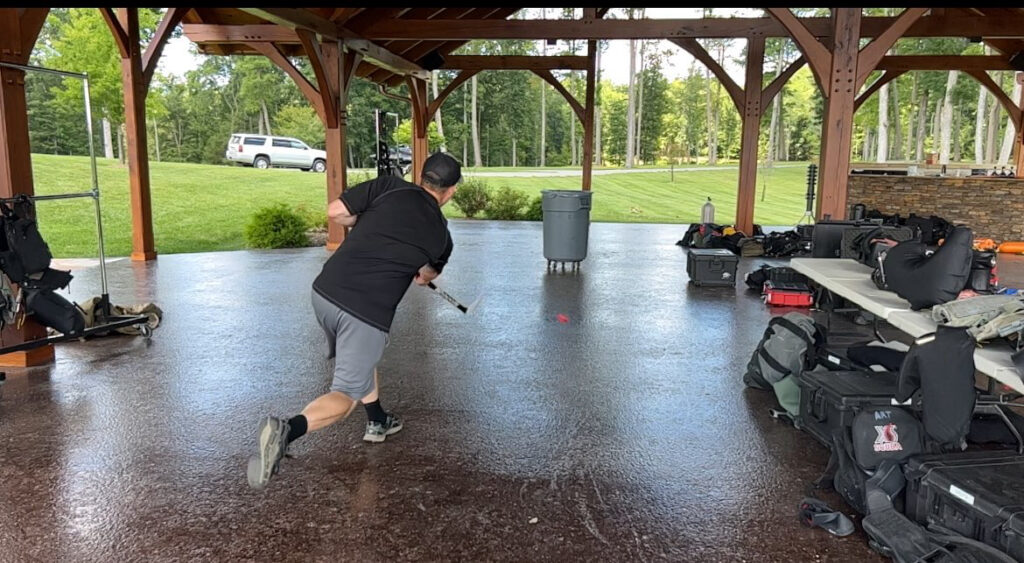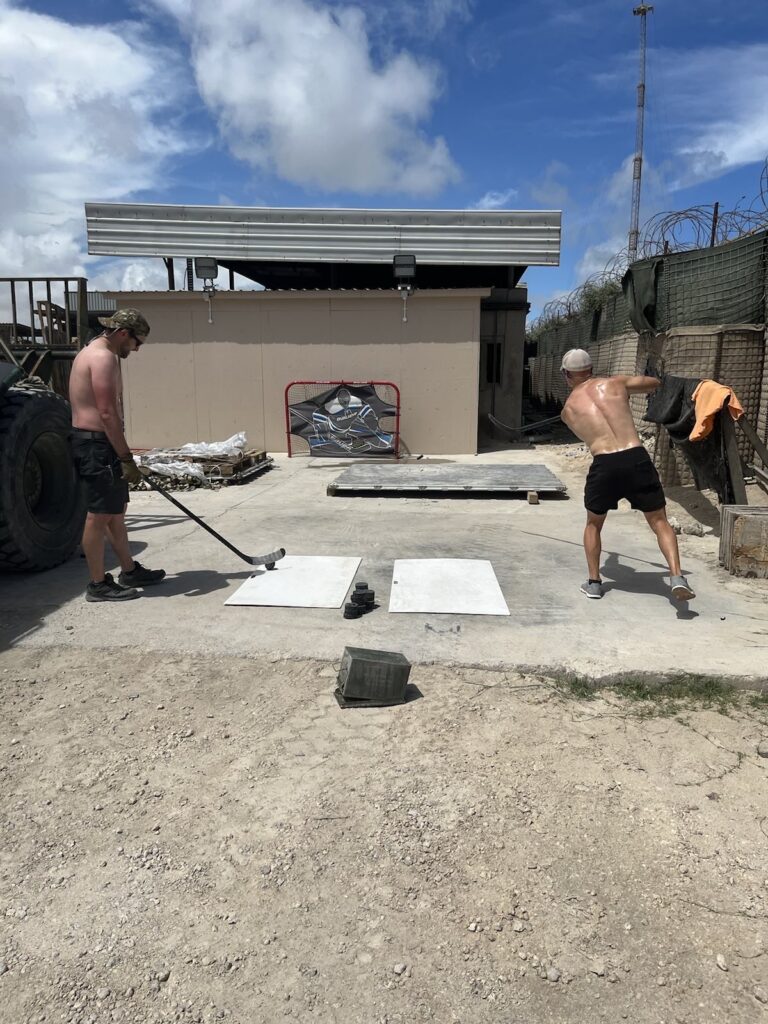Skating Through Stress
How a Game Offers Mental Resilience, Camaraderie, and a piece of home for Service Members
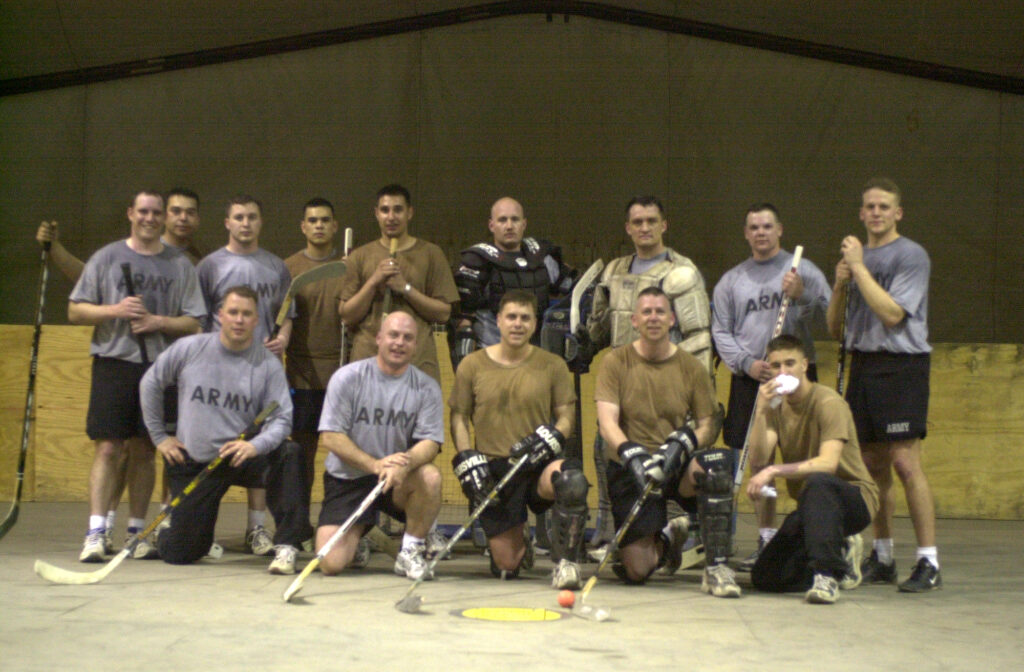
For Naval Special Warfare (NSW) and active duty service members, the relentless stress and uncertainty of deployment leave little room for mental decompression. However, hockey’s rhythmic, meditative practice, whether on ice or off, serves as a unique mental sanctuary, offering a much-needed respite from the rigors of military operations.
In far-flung places like Baghdad, Somalia, Afghanistan, or even two miles below the ocean’s surface—some find solace in the simplicity of stick handling and shooting. A stick and a puck are all it takes to create an improvised rink.
“Hockey has similar effects as meditation,” said Special Warfare Operator First Class Tim S., an active-duty SEAL. “Whether I’m shooting pucks or playing shinny [informal hockey game], it’s easy to get lost in what I’m doing.”
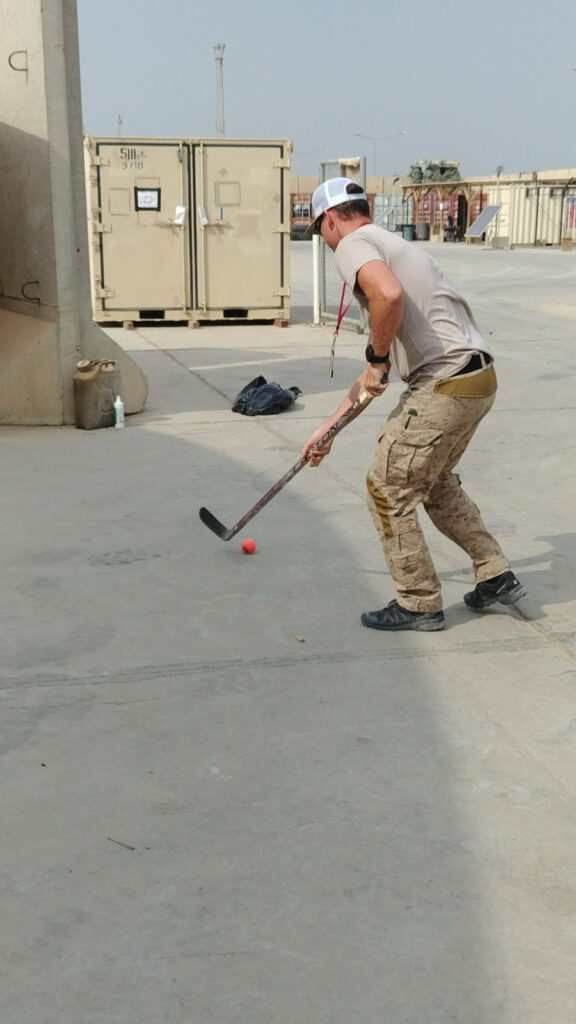
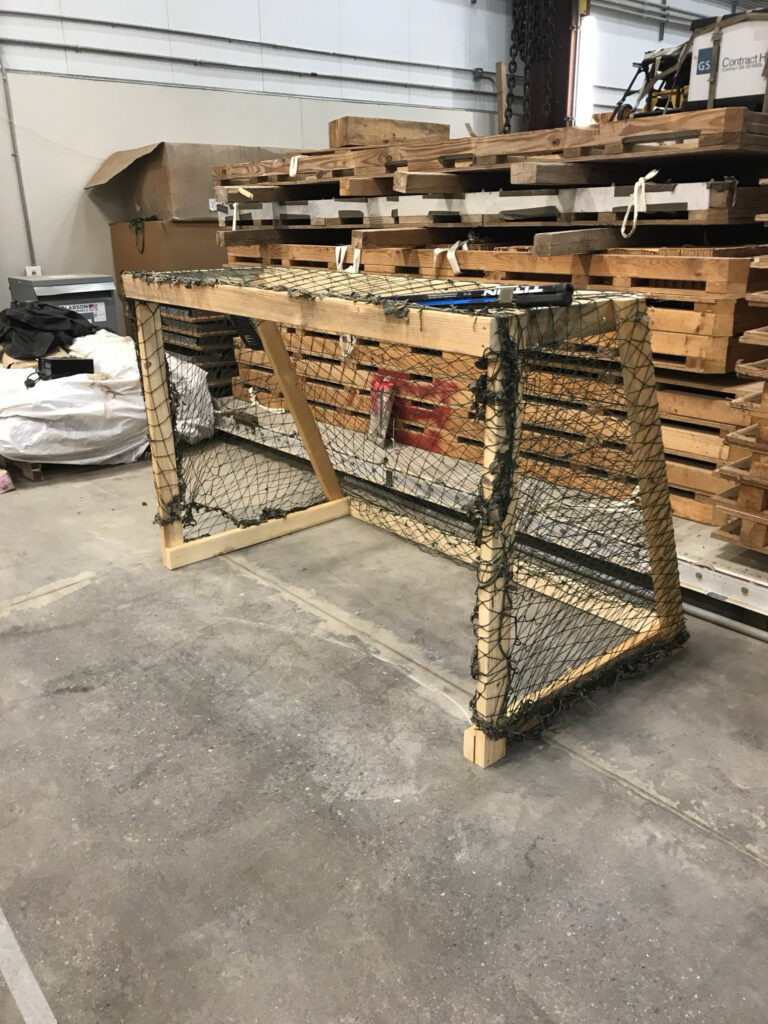
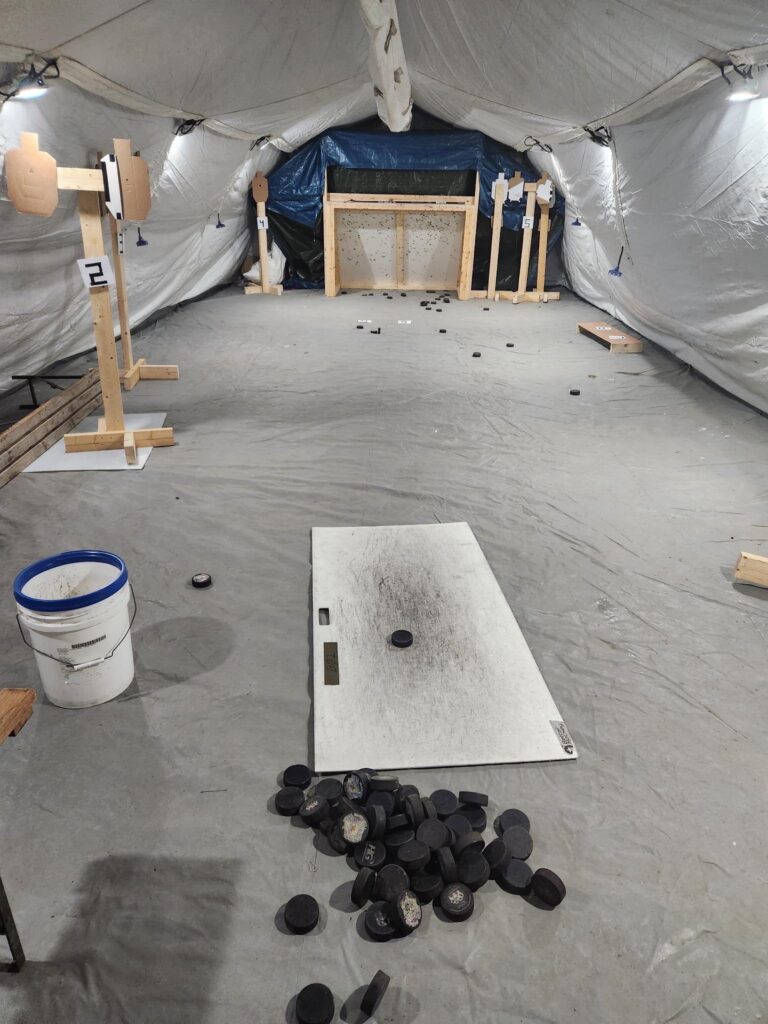
Captain (SEAL) Sam D. practices daily during deployment. This simple act provides mental relief and opportunities for new connections. “I shoot 100 pucks a day,” Sam said. “It draws curiosity from others, and then one, two, or three people show up to play, and friendships develop.”
The camaraderie built through these games stretches beyond the rink. Deployed service members, often isolated from their families and communities, use hockey to reconnect with themselves and their peers.
A 15-year Navy veteran, Daniel Ball, recalled training with makeshift brooms and tape balls while onboard submarines. For him, it was not just a distraction but a necessary escape from the isolation of being miles underwater.
“On board the submarine, we are supposed to clean every Friday morning,” said Ball. “Instead of cleaning, we used the brooms and a ball of tape for a short game in the berthing.”
“Hockey is a passion and a beautiful distraction during deployments”
-Sam Ford
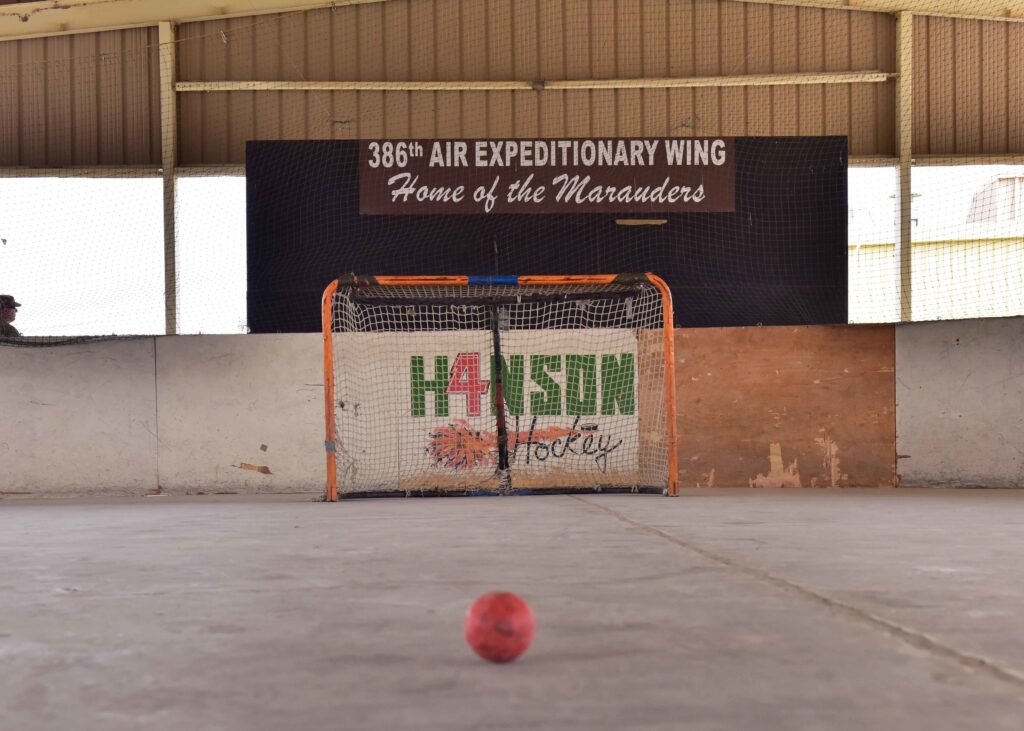
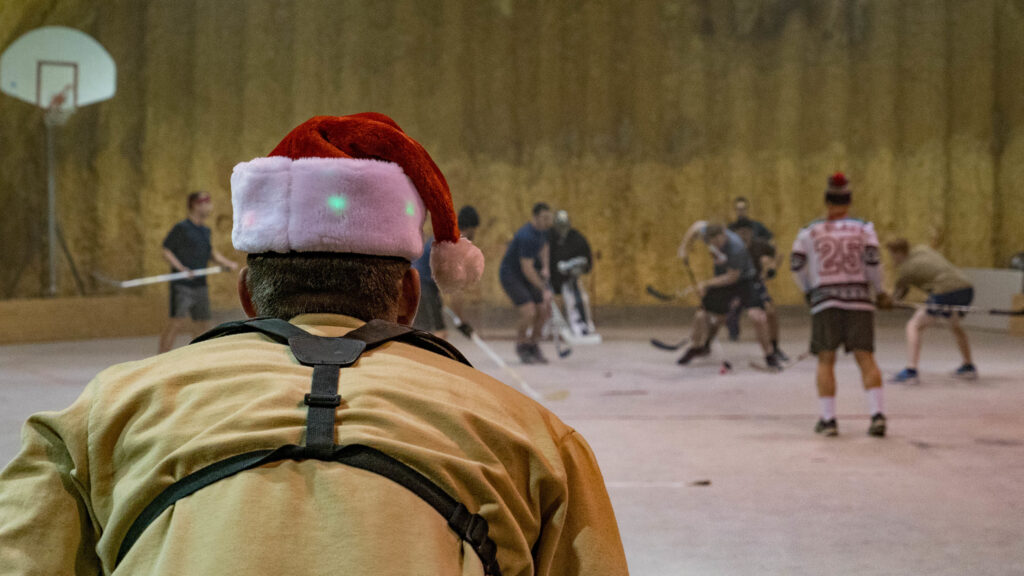
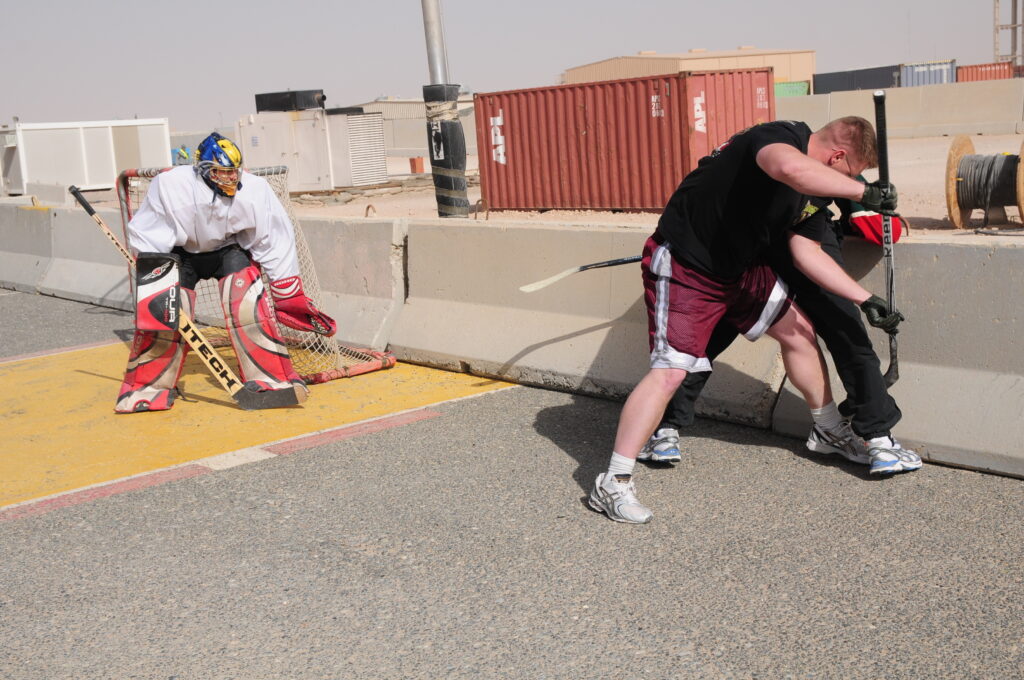
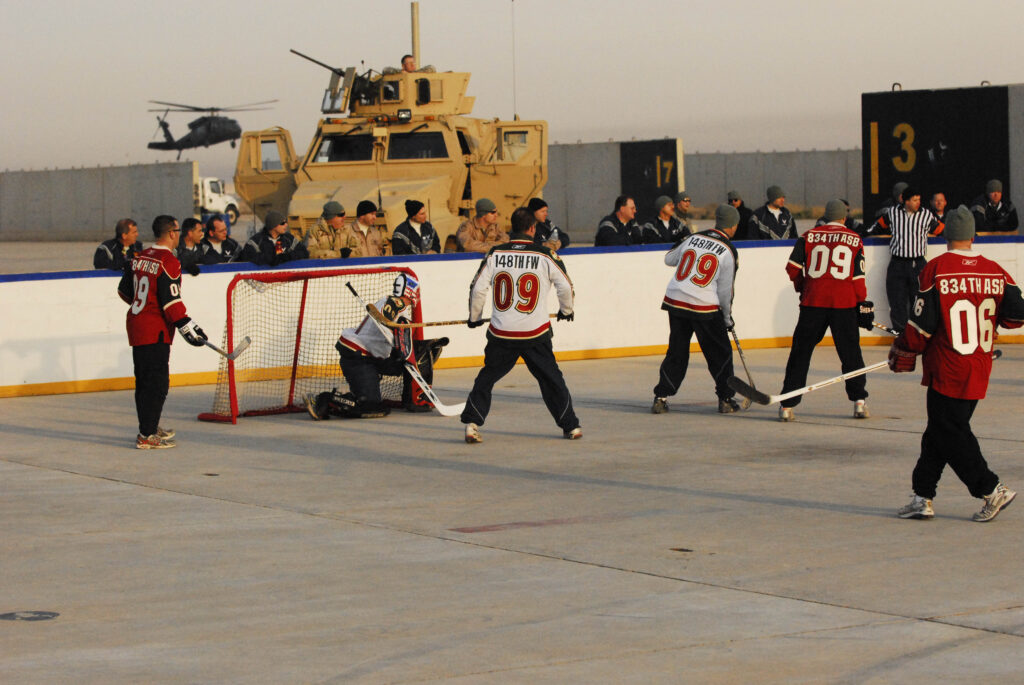
Research from Syracuse University shows participating in sports enhances the well-being of veterans. Engaging in new motor activities also stimulates neuroplasticity, helping the brain remain adaptable and agile.
The study, Impact of Sport and Physical Activity on the Well-Being of Combat Veterans has found participating in sports and physical activity can enhance veterans’ subjective and psychological well-being. This impact includes an increase in determination and inner strength, reduction in Post Traumatic Stress Disorder symptoms, improvement of identity and self-concept, a sense of achievement or accomplishment, and improvement in social well-being.
The Warrior for Life Fund (WFLF) was born from the needs of NSW service members. Uniquely, the sport of hockey creates an outlet for energy, focuses mental attention, and connects with a community that shares and values the strength of a team.
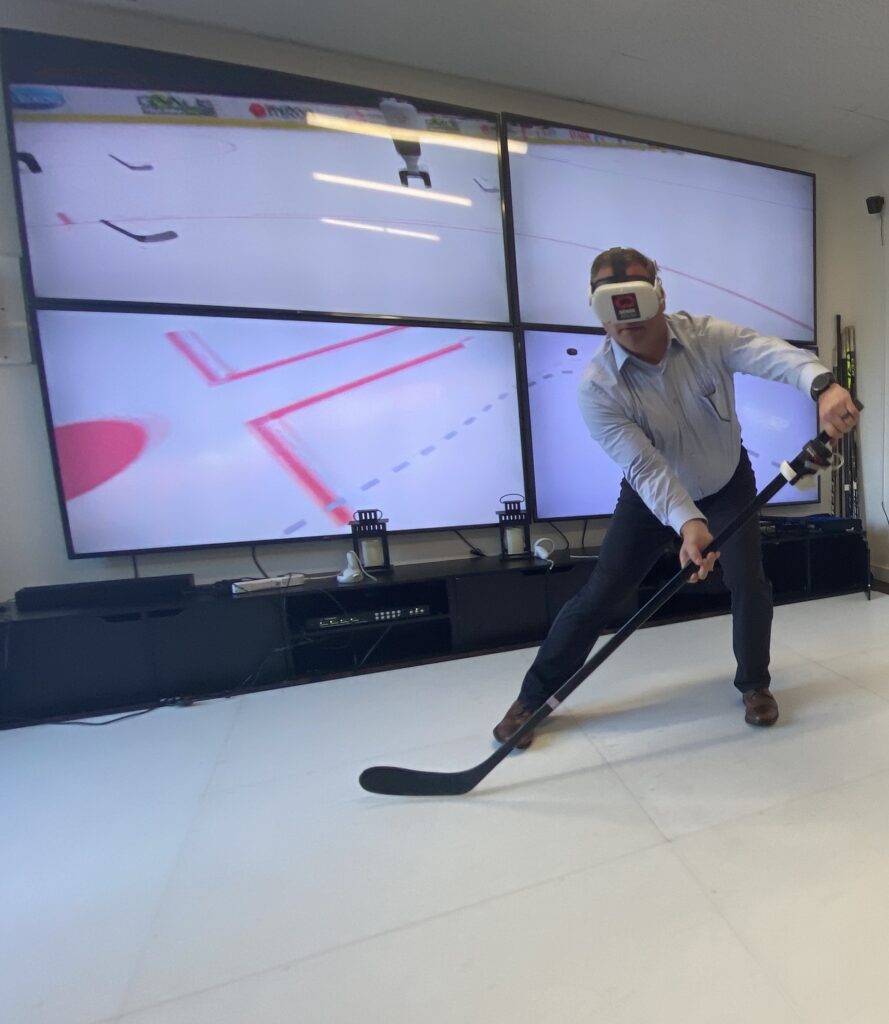
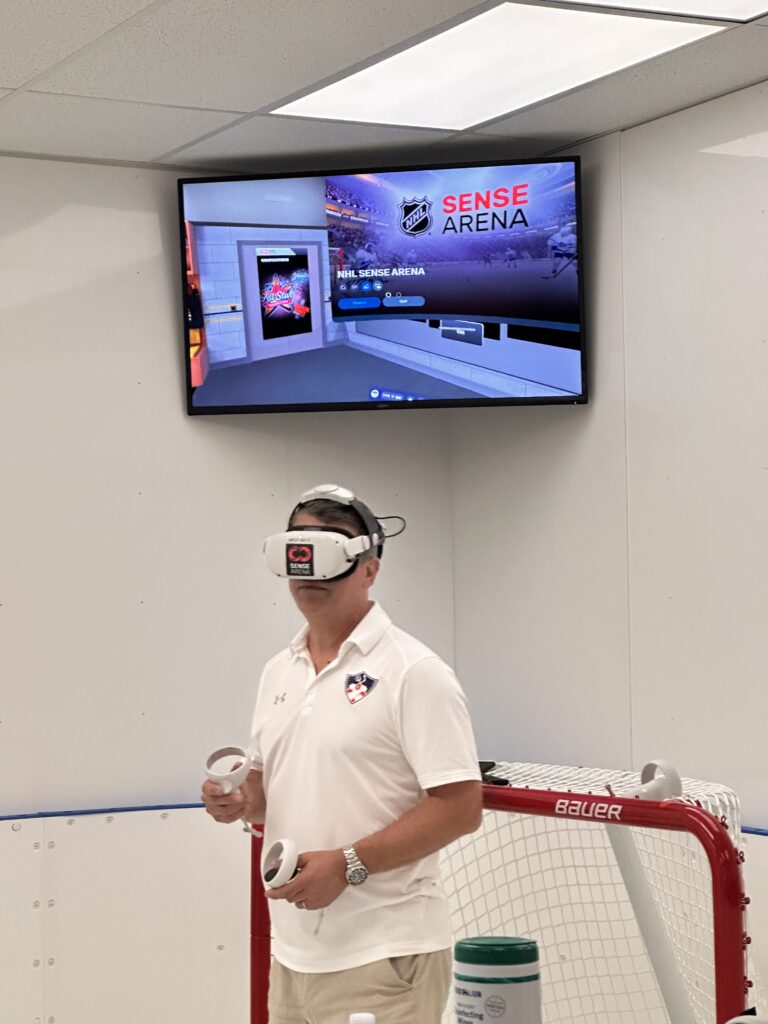
Subject matter experts and Virginia Beach-based medical providers have partnered with the WFLF to address the critical needs of the local special operations community. Beyond supplying hockey gear to deployed NSW members, WFLF has introduced innovative tools like Sense Arena, a virtual reality hockey training system at the WFLF Human Performance Center. This technology helps veterans improve cognitive and physical skills, enhancing reaction time, decision-making, and hand-eye coordination in a safe, controlled environment. These efforts support both mental resilience and physical recovery for active-duty service members and veterans.
Annie Tamburello-Croley, founder of Cortex Initiative, a Virginia-based medical speech-language pathologists’ group, has provided Traumatic Brain Injury (TBI) rehabilitation for special operators for over a decade.
“WFLF has identified the lack of local resources and has gathered TBI and mental health experts to fill the gap,” said Tamburello-Croley. “These professionals are extremely qualified and knowledgeable in their respective crafts and have years of experience working with the military population,” states Tamburello-Croley. “We are just getting started. I am so excited to see the future collaborations and expansion that I know are both necessary and possible.”
The camaraderie that develops through playing hockey is more than a bond formed by sport. It provides a reminder of life outside of deployment—a chance to reconnect with the person they are beneath the uniform. These impromptu games foster a sense of community and resilience transcending the military setting, creating moments of peace amid chaos.
“The game helps me remember who I am and where I come from,” said Tim. “Life gets more complicated, but hockey is my hour or two to reset.”
-WFLF-
